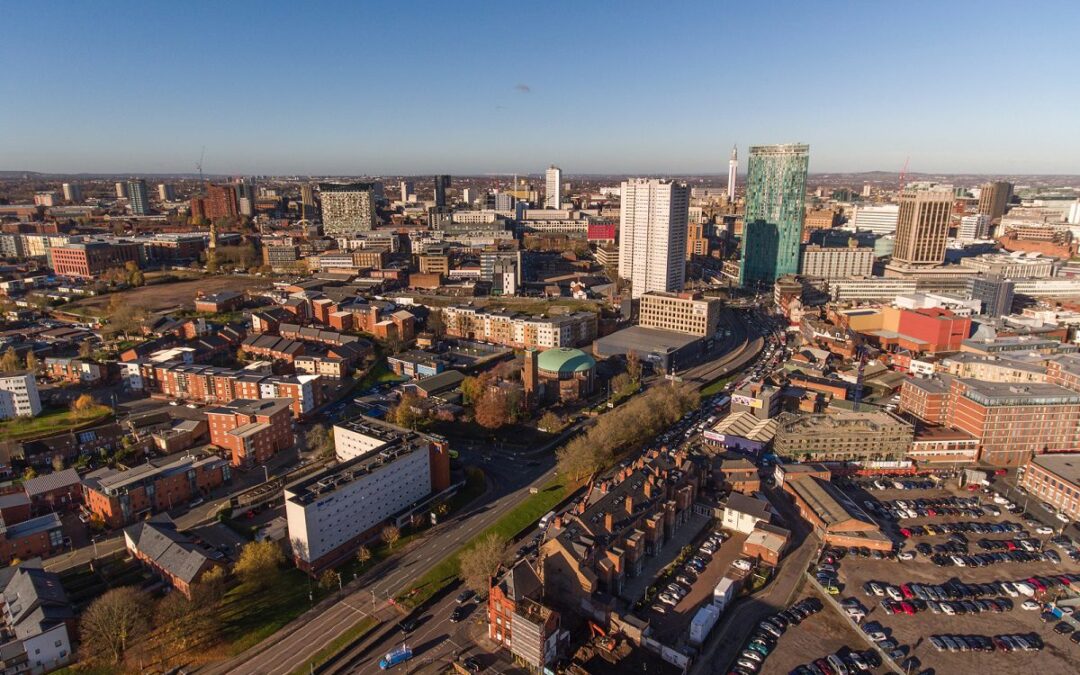Reproduced from the PHOEBE website, 1 August 2023
PHOEBE spoke with Sam Chapman, Senior Vice President of Innovation and co-founder of ‘The Floow’, about the importance of PHOEBE for West Midlands, existing road safety challenges in the English region, as well as the potential result and learnings that the pilot can provide. ‘The Floow’ cooperates with the local transport agency of Transport for West Midlands (TfWM) in their effort to enhance the safety of vulnerable road users in various traffic scenarios across the densely populated region.
Good afternoon Sam, how would you describe the mobility situation of the West Midlands region?
Transport services are co-ordinated by TfWM, which has the jurisdiction over seven metropolitan boroughs, the largest of which is the city of Birmingham. The local rail system comprises over one hundred stations, carrying services delivered by six different operators. A single light rail line conducts a tram service between the cities of Wolverhampton and Birmingham. Fifteen operators provide bus services across the region.
During the morning peak, more than 70% of all trips to urban centres are made by car, which decreases to 36% when Birmingham is considered in isolation. TfWM aims to reduce the high levels of car dependency and make West Midlands a place ‘where people can thrive without having to drive or own a car’. There is an increased focus on promoting active travel, which make up less than 2% of the traffic entering metropolitan centres during the morning peak. During the pandemic, TfWM were awarded £16.85m as part of the UK government’s emergency active travel fund to build dedicated infrastructure for walking and cycling.
What are the unique aspects for a region in the PHOEBE project?
Unlike other the use-case locations, West Midlands is a combined authority comprising of multiple towns and cities. Each local authority will have its own perspective and priorities when it comes to transport, arising from the different constituent levels of rural and urban areas within each. Many of the regions have high degrees of urban deprivation and high population growth creating new challenges for safe citizen mobility.
What are the road safety challenges of the West Midlands?
The West Midlands target is a 40% reduction of serious injuries and fatalities (KSI) by 2028, which requires a reduction from an average of 1048 of this type of accidents in 2017 to 629 in the next five years. However, the region faces several challenges to achieve safer roads, such as a widespread proliferation of e-mobility solutions, more vehicles utilising connected and autonomous technologies, and increasing levels of active travel. In 2017, 64% of KSI road users in the West Midlands were pedestrians, cyclists, or motorcyclists. There is a danger that the region’s goal to reduce car dependency and increase the proportion of active travel trips will lead to an increase in the overall number of persons KSI in an environment where the underlying level of risk remains the same.
How can West Midlands support the other pilot cities and vice versa?
Our region is a large area with a large variety of differing road risk scenarios. This coupled with large numbers of co-located programs allows lessons to be learned applicable to other regions drawing from the wide variety of the transport environment and its solutions.
iRAP is proud to be a partner of PHOEBE. For more information on the project, visit https://phoebe-project.eu/


















